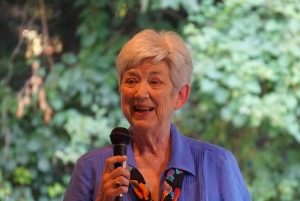About the MFA Program for Writers
An alternative to the wholly residential workshop, the program is structured to meet students’ needs, to help them recognize specific strengths and address specific weaknesses in their work, and to encourage them to see themselves as active participants in the creation and study of literature.
What is a Low-Residency MFA Program?
Every six months, students from across the globe gather here on campus to form a cohesive, non-competitive community that offers camaraderie, direction, and inspiration. The four-semester course of study toward the Master of Fine Arts degree is carried out by alternating on-campus residency sessions with semesters of independent study under close faculty supervision. The residencies, attended by all faculty and students, are ten days long and take place two times a year, once in early January, and once in early July.
Readings, lectures, classes, workshops, meetings, informal exchange, and conferences all help foster a strong sense of community among peers. In the classes and team-taught workshops, students will find an environment that is non-competitive, while our low student-faculty ratio (never more than 5:1) ensures that each student will receive personalized attention that will help provide direction for the semester.
Following the residency, correspondence between the student and the faculty supervisor occurs at regular, contracted intervals. This individualized course of study and thorough engagement with faculty, occurring within the context of one’s ongoing adult life, make the Program useful to writers at all stages of their development.
Artistry, Rigor, Community, and the Possibilities of the Imagination
The Master of Fine Arts degree at Warren Wilson represents the study of literature from within the writer’s perspective. It is not, however, a technical or narrow degree. The reading and analytical components of each Semester Project, and the variety of classes and workshops offered during the residency periods, provide opportunities for unusually well-integrated, humanities-based curricula–without sacrifice of direct manuscript, work, and criticism.
The Program’s commitment to active teaching and active learning is unshakeable. While the balanced study of literature and the craft of writing does make its graduates attractive candidates for teaching positions, no one should apply to the program if he/she seeks the degree mainly for employment purposes. Likewise, while our graduates publish their work widely, no one should apply seeking only an editor for projects in progress. Our goal is not to supply credentials or technical support but to assist students with their education and their development as writers.



